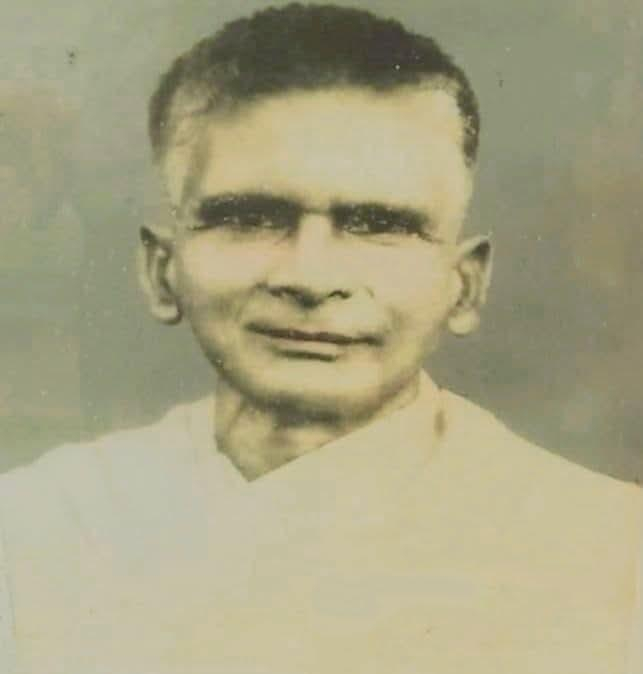Published: 08:53 AM, 04 October 2025
Purnendu Kishore Sengupta: The Immortal Hero of Freedom and Social Justice

Sangram Datta: In the grand narrative of India’s struggle for independence, certain names shine like beacons of courage and conviction. Among them, Purnendu Kishore Sengupta stands out—a man who was much more than a politician. He was a social reformer, a tireless advocate for laborers and peasants, and a steadfast protector of the oppressed. His life was a journey defined by struggle, service, and an unyielding commitment to justice.
Early Life: Seeds of Revolution:
Born in 1895 at Banar in Dhaka, Purnendu Kishore Sengupta was the son of Shyam Kishore Sengupta, a prominent lawyer at the Sylhet Judge’s Court. Even as a young boy, Purnendu was drawn to revolutionary ideals. He joined the Sylhet branch of the Practice Association, established by the revolutionary Nagen Dutta, signaling the start of a lifetime dedicated to justice and freedom.
During his B.Sc. studies at Dhaka University, he came under the influence of Acharya Prafulla Chandra Ray, which nurtured his political awareness and social consciousness. During his M.Sc., he boldly participated in the Non-Cooperation Movement and even boycotted his exams—a testament to his independent spirit.
The Freedom Fighter and Social Reformer:
In 1922, Purnendu Kishore had joined the Dhaka Abhoy Ashram and became the editor of the Vidyashram in Banar, Bikrampur, founded by Dhirendranath Dasgupta. Here, his activism extended far beyond politics. He led relief efforts, prevented communal riots, and devoted himself to public welfare and social service.
When the Padma River threatened to destroy the Vidyashram, he relocated it to Sylhet district, renaming it Rangirkul Vidyashram at Kulaura Thana under South Sylhet ( Now Moulvibazar district). Under his guidance, the ashram became a hub of Gandhian activism, attracting young minds and serving as a center for social reform.
In 1930, he took part in the Salt Satyagraha and faced imprisonment for his convictions. By 1932, he had founded the Sylhet Women’s Association and led the historic Satyagraha of Manipuri peasants in the Bhanu Bil region, compelling the government to enact the People’s Rights Act. For his efforts, he spent another two and a half years behind bars—a small price for justice in his eyes.
Champion of Relief and Welfare:
Purnendu Kishore’s compassion extended to the most vulnerable. During the devastating floods of 1929 in Sylhet and Cachar, he plunged headfirst into relief work. During World War II, he assisted refugees fleeing from Burma.
In 1935, he organized an art exhibition celebrating the Golden Jubilee of the Indian National Congress, blending culture with activism.
Rangirkul Vidyashram stood as a living symbol of his philosophy—a place where education, arts, social service, and political awareness flourished side by side.
Political Leadership and Parliamentary Work:
In 1946, he was elected as a member of Assam legislative Assembly during the last election of British India. Following Partition in 1947, he remained in East Pakistan and dedicated himself to the welfare of tea workers.
On 3 June 1948, he founded the Sylhet Tea Workers’ Union in Kulaura. Serving as its founding president, he worked alongside MLA Jiban Sawtal (Vice president), Nikunj Bihari Chowdhury (General secretary), and Dorges Dev (Organizational secretary). This union would later become the Bangladesh Tea Workers’ Union, continuing his legacy.
In 1954, he was elected to the Pakistan Parliament from Moulvibazar under the United Front. A decade later, in 1964, he won a landslide victory from the Kulaura-Rajnagar constituency. Even when Ayub Khan’s regime banned his union, Purnendu’s resolve remained unshaken. In 1965, during the India-Pakistan war, he was imprisoned in Sylhet Jail.
Supporter of the Liberation Movement:
In 1971, Pakistani forces repeatedly attempted to assassinate him in Kulaura and Sylhet. Forced to relocate to India, he provided crucial assistance to freedom fighters, continuing his lifelong commitment to justice and humanity.
On 17 November 1978, Purnendu Kishore Sengupta passed away at Rangirkul Ashram in Kulaura. His life was more than a political journey—it was a testament to selfless service and dedication to the welfare of others.
Conclusion:
Purnendu Kishore Sengupta was an indomitable hero of the freedom struggle, social service, and labor-peasant movements. From imprisonment and riot prevention to relief work, the protection of tea workers’ rights, and parliamentary service, he played a unique and enduring role in every sphere. His life proves that true leadership is measured not by power but by struggle, service, and selfless dedication to humanity. Today, Rangirkul Ashram and the Sylhet Tea Workers’ Union remain living monuments to his ideals, keeping the flame of his vision alive for generations to come.




